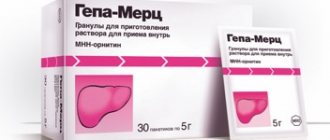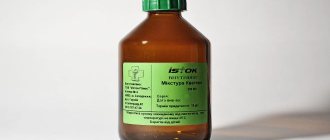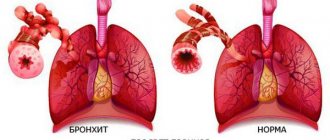Pharmacodynamics and pharmacokinetics
Tizanidine is a skeletal muscle relaxant whose main site of action is the spinal cord. This drug reduces the increased tone of the skeletal muscles, relieves spasms, and increases the strength of voluntary contractions. Sirdalud is effective for chronic spasticity of cerebral and spinal origin and for acute muscle spasm . In addition, it also has a mild analgesic effect.
Tizanidine is absorbed quite quickly and virtually completely. The highest level of drug concentration in plasma can be observed approximately an hour after its administration. The substance is excreted by the kidneys.
Medicine Sirdalud: instructions
For the treatment of spasticity of skeletal muscles caused by neurological pathology, 6 mg of the drug per day is prescribed. The dose is divided into three doses in equal quantities. Thus, the minimum single dose starts from 2 mg. If it is necessary to increase the therapeutic effect, the daily dose is increased gradually, adding 2 mg per day every week. Severe diseases of muscle tone are relieved with a dose of 12 to 24 mg per day. The number of receptions can be increased up to 4 times.
At the same time, you should not exceed the maximum allowable amount of 36 mg per day.
For older patients over 65 years of age, it is recommended to begin treatment with a minimum amount of Tizanidine. If 2 mg does not give the expected effect, a gradual increase in daily intake is allowed while monitoring the patient's condition. It is recommended to follow the same regimen when treating patients with impaired renal function. Eating may increase the period during which the maximum amount of Tizanidine is concentrated in the patient's blood. Therefore, take the medicine an hour after eating.
Indications for use of Sirdalud
What are Sirdalud tablets for? Indications for use are as follows:
- muscle spasm , which is associated with diseases of the spine (these include lumbar and cervical syndromes), or which appeared after the intervention of a surgeon;
- spasticity of skeletal muscles in the manifestation of neurological diseases ( multiple sclerosis , chronic myelopathy , cerebral palsy , degenerative diseases of the spinal cord).
Sirdalud: what is the drug prescribed for?
The reason for prescribing Sirdalud is various muscle spasms caused by diseases of the spine, including localization in the cervical lumbar region. In addition, pain after surgical reduction of intervertebral hernias is also relieved by taking Sirdalud.
If the cause of pain in the muscles is multiple sclerosis, or a congenital pathology in the form of diagnosed cerebral palsy, which causes spasticity of the muscular skeleton, Sirdalud is prescribed.
Side effects
Side effects of Sirdalud include:
- dizziness , drowsiness , sleep disturbances , insomnia ;
- bradycardia , decreased blood pressure;
- stomach upsets , nausea , dry mouth ;
- increased fatigue, muscle weakness ;
- increased activity of liver transaminases.
As a result of abrupt cessation of taking Sirdalud after a long period of treatment, tachycardia and increased blood pressure may develop, which can lead to impaired blood circulation in the brain, so the dose of the drug should be reduced gradually, until it is completely discontinued.
As a result of clinical studies, the following adverse events were identified, the frequency of which was not identified:
- confusion , hallucinations , vertigo ;
- blurred vision;
- liver failure , hepatitis ;
- withdrawal syndrome , asthenia .
Drug interactions
Simultaneous use with inhibitors is permissible only if treatment is carried out at low doses of Sirdalud. Once in the blood, CYP1A2 increases the amount of the main substance in human plasma, which can cause symptoms of overdose. In turn, CYP1A2 inducers, entering the blood with Sirdalud, on the contrary, reduce the amount of tizanidine in the body, which makes the expected therapeutic effect insignificant even at high doses of consumption.
Concomitant use with antibiotics leads to a sharp decrease in blood pressure, the development of dizziness and drowsiness, which can cause loss of consciousness.
Rifampin, entering the blood, displaces tizanidine, which means it reduces the therapeutic effect. Treatment with Sirdalud should not be combined with alcohol intake. The drug significantly enhances the effect of alcohols on the central nervous system, leading to a pronounced change in consciousness.
Instructions for use of Sirdalud (Method and dosage)
The medicine is taken orally, the dose is determined based on the individual characteristics of the human body. To minimize the risk of side effects, you should start with a dose of 1 tablet (2 mg) or half a tablet (4 mg) 3 times a day.
For severe muscle spasms, tablets of 2 mg or 4 mg are prescribed 3 times a day. In particularly severe cases, you can take an additional dose of 2 mg or 4 mg before bedtime.
If skeletal muscle spasticity occurs, which can be caused by neurological diseases, the initial dose is 6 mg per day, taken in 3 divided doses. The dose must be increased gradually, by 2-4 mg, over an interval of 3 to 7 days. The optimal effect is achieved when taking 12-24 mg per day 3-4 times a day. You should not take a dose higher than 36 mg per day.
Persons over 65 years of age are recommended to start taking the drug with a minimum dose, gradually increasing it to the optimal size, which will allow achieving effective therapy with minimal side effects.
Patients with impaired renal function should begin treatment with a dose of 2 mg per day at a time. The dose is increased gradually, in small steps, taking into account the effectiveness and tolerability of the drug.
Instructions for use of the drug Sirdalud MR
The drug is a capsule containing 6 mg of tizanidine. The initial dose of Sirdalud is 1 capsule per day. The dose can be gradually increased by 6 mg at intervals of 3 to 7 days. For most patients, the optimal dose is 12 mg per day. In rare cases, the dose can be increased to 24 mg (4 capsules) per day.
Injections of this drug can only be prescribed by a doctor.
Sirdalud tablets - composition and principle of action
The main substance of the product, sold under the name Sirdalud, is tizanidine in a volume of 2 mg or 4 mg. Auxiliary components are:
- stearic acid;
- MCC;
- lactose monohydrate;
- anhydrous colloidal silicon dioxide.
The drug is sold in 30 pieces per package. Each package contains 3 blisters, each containing 10 doses. One tablet can contain 2 mg or 4 mg of the active substance, which allows the doctor to prescribe an effective and safe therapeutic dose with an accuracy of 1 mg.
Tizanidine is a skeletal muscle relaxant. It mainly acts on the spinal cord, reducing the high tone of the muscular skeleton and releasing the clamped areas from spasm. An additional effect of the drug is an analgesic effect.
Tizanidine is actively absorbed in the gastrointestinal tract. After an hour, its maximum concentration in the blood is reached. The kidneys are involved in removing the substance from the body.
Sirdalud belongs to the centrally acting drugs of the muscle relaxant group.
Overdose
An overdose of Sirdalud can be expressed as follows:
- decreased blood pressure;
- vomiting , nausea ;
- drowsiness , dizziness , anxiety, miosis ;
- coma , respiratory failure.
Treatment: repeated intake of activated charcoal and forced diuresis will speed up the removal of the drug from the body. After removal, symptomatic treatment is carried out.
Overdose of Sirdalud
If the patient was unjustifiably prescribed the maximum dose of the drug, or he independently increased the number of doses, the following adverse reactions caused by an overdose may be observed:
- vomit;
- drowsiness;
- loss of coordination;
- dizziness;
- decrease in systolic pressure;
- miosis;
- respiratory rhythm disturbances.
Significantly exceeding the maximum permissible daily dosage can put the patient into a coma.
Interaction
Concomitant use of the drug with inhibitors of cytochrome CYP1A2 leads to an increase in plasma levels of tizanidine, which in turn leads to overdose symptoms. Simultaneous consumption of Sirdalud with CYP1A2 inducers leads to a decrease in tizanidine levels, which causes a decrease in the medicinal properties of the drug.
The use of Sirdalud together with fluvoxamine and Ciprofloxacin . The result of simultaneous use can be a significant decrease in blood pressure, which is accompanied by dizziness and drowsiness, and in some cases, loss of consciousness.
It is not recommended to take the medicine with antiarrhythmic drugs (such as Propafenone , Mexiletine , Amiodarone ), some fluoroquinolones ( Norfloxacin , Enoxacin , Perfloxacin ), Cimetidine , Ticlopidine , oral contraceptives, Rofecoxib .
Sirdalud should be taken with caution with drugs that prolong the QT interval ( Amitriptyline , cisapride , Azithromycin , etc.).
The use of Sirdalud together with Rifampicin reduces the content of tizanidine in plasma and, accordingly, reduces the therapeutic effect of the drug.
Treatment of men who smoke with the drug may require an increase in dose. Alcohol should be avoided, as the medicine may enhance the negative effects of alcohol on the central nervous system. The sedative effect of Sirdalud can be enhanced by sleeping pills, sedatives and antihistamines.
Sirdalud® MR (Sirdalud® MR)
With simultaneous use of the drug Sirdalud® MP with inhibitors of the CYP1A2 isoenzyme, an increase in the concentration of tizanidine in the blood plasma is possible. In turn, an increase in tizanidine plasma concentrations may lead to symptoms of drug overdose, including prolongation of the QT(c) interval.
The simultaneous use of Sirdalud®MR with inducers of the CYP1A2 isoenzyme may lead to a decrease in the concentration of tizanidine in the blood plasma, which may lead to a decrease in the therapeutic effect of the drug.
Contraindicated combinations with tizanidine
The simultaneous use of tizanidine with fluvoxamine or ciprofloxacin, inhibitors of the CYP1A2 isoenzyme, is contraindicated.
When tizanidine was used with fluvoxamine or ciprofloxacin, there was a 33-fold and 10-fold increase in tizanidine AUC, respectively. The result of simultaneous use may be clinically significant and prolonged arterial hypotension, accompanied by drowsiness, dizziness, and a decrease in the speed of psychomotor reactions (in some cases, up to collapse and loss of consciousness).
Combinations not recommended with tizanidine
It is not recommended to use tizanidine simultaneously with other inhibitors of the CYP1A2 isoenzyme - antiarrhythmic drugs (amiodarone, mexiletine, propafenone), cimetidine, some fluoroquinolones (enoxacin, pefloxacin, norfloxacin), rofecoxib, oral contraceptives, ticlopidine.
Combinations with tizanidine requiring caution
Caution must be exercised when using Sirdalud® MR simultaneously with drugs that prolong the QT interval (for example, cisapride, amitriptyline, azithromycin).
Antihypertensive drugs
The simultaneous use of Sirdalud® MR with antihypertensive drugs, including diuretics, can sometimes cause a decrease in blood pressure (in some cases, up to vascular collapse and loss of consciousness) and bradycardia.
When the drug Sirdalud® MR was abruptly discontinued after use together with antihypertensive drugs, the development of tachycardia and an increase in blood pressure was observed, which can in some cases lead to acute cerebrovascular accident.
Rifampicin
Simultaneous administration of tizanidine and rifampicin leads to a 50% decrease in the concentration of tizanidine in the blood plasma. As a result, the therapeutic effect of Sirdalud® MR may be reduced, which may be clinically significant for some patients. Long-term simultaneous use of rifampicin and tizanidine should be avoided; if this is not possible, careful selection of the dose of tizanidine (increasing) is recommended.
Smoking tobacco
The systemic bioavailability of tizanidine in smoking patients (more than 10 cigarettes per day) is reduced by approximately 30%. Long-term therapy with the drug in patients in this category may require higher doses of tizanidine than the average therapeutic ones.
Alcohol
During drug therapy, you should avoid drinking alcohol, as it may increase the likelihood of adverse events (for example, decreased blood pressure and lethargy). Tizanidine may enhance the depressant effect of alcohol on the central nervous system.
Other medicines
Sedatives, hypnotics (benzodiazepine, baclofen) and other drugs, such as H1-histamine receptor blockers, may also enhance the sedative effect of tizanidine.
Avoid taking Sirdalud® MR with other alpha2-agonists (for example, clonidine) due to the potential for increased hypotensive effects.
special instructions
The drug is not recommended for patients with galactose intolerance , as well as those suffering from severe deficiency or glucose/galactose malabsorption , due to the presence of lactose in the composition.
Since one of the side effects of the drug is drowsiness, it is highly recommended to refrain from driving a car or performing work related to machinery or machinery.
Analogues of Sirdalud
Level 4 ATC code matches:
Tizanil
Tizanidine
Tolperisone-OBL
Tizalud
Mydocalm-Richter
Mydocalm
Baklosan
Baclofen
An analogue of Sirdalud in release form and composition is Tizalud .
Also, an analogue in composition is Mydocalm , which is available both in film-coated tablets and in the form of an injection solution.
Mydocalm or Sirdalud - which is better?
Sirdalud is more of a modern drug, having a dosage form that allows it to be taken once a day, while Mydocalm has been more studied by doctors and has broader indications for use. The side effects of both drugs are similar.
Sirdalud®
When using the drug Sirdalud® with inhibitors of the CYP1A2 isoenzyme, an increase in the concentration of tizanidine in the blood plasma is possible. In turn, an increase in the concentration of tizanidine in the blood plasma can lead to symptoms of drug overdose, including prolongation of the QT(c) interval.
The simultaneous use of Sirdalud® with inducers of the CYP1A2 isoenzyme may lead to a decrease in the concentration of tizanidine in the blood plasma, which may lead to a decrease in the therapeutic effect of the drug.
Contraindicated combinations with tizanidine
The simultaneous use of tizanidine with fluvoxamine or ciprofloxacin, inhibitors of the CYP1A2 isoenzyme, is contraindicated.
When tizanidine was used with fluvoxamine or ciprofloxacin, a 33-fold and 10-fold increase in tizanidine AUC was observed, respectively. The result of simultaneous use may be significant and prolonged hypotension accompanied by drowsiness, dizziness, and a decrease in the speed of psychomotor reactions (in some cases, up to circulatory collapse and loss of consciousness).
Not recommended combinations with tizanidine
It is not recommended to use tizanidine simultaneously with other inhibitors of the CYP1A2 isoenzyme - antiarrhythmic drugs (amiodarone, mexiletine, propafenone), cimetidine, some fluoroquinolones (enoxacin, pefloxacin, norfloxacin), rofecoxib, oral contraceptives, ticlopidine.
Combinations with tizanidine
requiring caution Caution
must be exercised when using Sirdalud® simultaneously with drugs that prolong the QT interval (for example, cisapride, amitriptyline, azithromycin) .
Antihypertensive drugs
The simultaneous use of Sirdalud® with antihypertensive drugs, including diuretics, can sometimes cause a pronounced decrease in blood pressure (in some cases, up to circulatory collapse and loss of consciousness) and bradycardia.
When the drug Sirdalud® was abruptly discontinued after simultaneous use with antihypertensive drugs, the development of tachycardia and an increase in blood pressure was observed, which in some cases can lead to acute cerebrovascular accident.
Rifampicin
Simultaneous administration of tizanidine and rifampicin leads to a 50% decrease in the concentration of tizanidine in the blood plasma. As a result, the therapeutic effect of the drug may be reduced, which may be clinically significant for some patients. Long-term simultaneous use of rifampicin and tizanidine should be avoided; if impossible, careful selection of the dose of tizanidine (increase) is recommended.
Smoking tobacco
The systemic bioavailability of tizanidine in smoking patients (more than 10 cigarettes per day) is reduced by approximately 30%. Long-term drug therapy in patients in this category may require higher doses of tizanidine than the average therapeutic dose.
Alcohol
During drug therapy, you should avoid drinking alcohol, as it may increase the likelihood of adverse events (for example, decreased blood pressure and lethargy). Tizanidine may enhance the depressant effect of alcohol on the central nervous system.
Other medicines
Sedatives, hypnotics (benzodiazepine, baclofen) and other drugs such as antihistamines may also increase the sedative effect of tizanidine. Avoid taking the drug with other alpha2-adrenergic agonists (eg, clonidine) due to the potential for increased hypotensive effects.
Reviews for Sirdalud
Reviews of Sirdalud tablets are left by patients of different ages. The average rating on the forums for this medicine is 3.9 points out of 5. Many patients note the occurrence of side effects such as drowsiness and fatigue. There are also reports of the drug's effect on the liver.
Reviews from doctors about Sirdalud: the drug is used for symptomatic treatment, it helps reduce spasms of the skeletal muscles. If side effects are severe or there is no result after 3 days of taking the medication, you must contact your doctor to adjust the treatment regimen.
Price for Sirdalud
The cost of Sirdalud 2 mg tablets is about 200 rubles, 4 mg packages are about 300 rubles.
The price of tablets in Ukraine for 2 mg is about 250 UAH, for 4 mg is about 350 UAH.
- Online pharmacies in RussiaRussia
- Online pharmacies in UkraineUkraine
- Online pharmacies in KazakhstanKazakhstan
ZdravCity
- Sirdalud tablets 4 mg 30 pcs.Novartis Urunleri
RUB 284 order - Sirdalud tablets 2 mg 30 pcs. Novartis Urunleri
RUB 208 order
- Sirdalud mr caps. with mod. release 6mg n30Novartis Saglik Gida ve Tarim Yurunleri Sanayi ve Ticaret A.S.
RUR 501 order
Pharmacy Dialogue
- Sirdalud MR (caps. 6 mg No. 30)Novartis Saglik Gida te Tarim Sanayi ve Ticaret A.
RUB 482 order
- Sirdalud (tab. 4 mg No. 30)Novartis
RUB 284 order
- Sirdalud (tab. 2 mg No. 30)Novartis
RUB 195 order
- Sirdalud MR (caps. 6 mg No. 30)Novartis
RUB 483 order
show more
Pharmacy24
- Sirdalud 4 mg No. 30 tablets Novartis Urunleri, Turkey
358 UAH.order - Sirdalud 2 mg No. 30 tablets Novartis Pharma S.p.A./Novartis Saglik, Gida ve Tarim Urunleri San.Ve Tik. A.S., Italy/Tureccia
245 UAH order
PaniPharmacy
- Sirdalud tablets Sirdalud tablets. 2mg No. 30 Türkiye, Novartis Urunleri
254 UAH order
- Sirdalud tablets Sirdalud tablets. 4mg No. 30 Türkiye, Novartis Urunleri
359 UAH. order
show more




